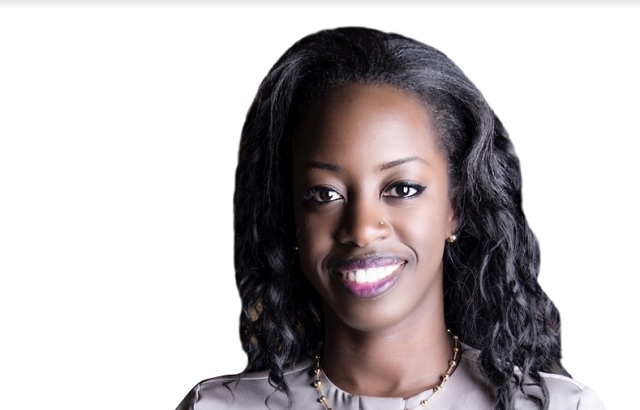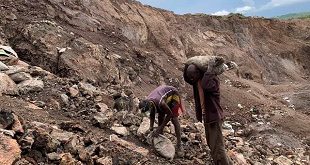
What It Means for Africa, U.S. and partners
NEWS ANALYSIS | THE INDEPENDENT | The July 27 morning’s coup d’etat in Niger only deepens the pattern of instability across Africa’s Sahel and damages what has been a rare process of fairly steady democracy building in the region. Niger’s democratically elected government has been a valued partner for African and international efforts to stabilize the Sahel against its web of insurgencies, extremist movements and military coups.
Kamissa Camara, a former foreign minister of Niger’s neighbor, Mali, now an analyst on the region with United Institute for Peace (USIP), says the coup underlines lessons already evident about how to improve international efforts to build democracy and peace.
The overthrow of a democratically elected government in a nation of 25 million people that is bigger than Texas and California combined resonated in Africa. Niger’s coup follows others, since 2020, in Burkina Faso, Chad, Guinea, Mali and Sudan. Much is still to be learned about how this crisis erupted and specifically how African and international partners should respond, said Camara, whose own government was overthrown by a 2020 army coup in Mali. But the overall lines of better policies to promote stability are already clear from recent experience and research, she said in an interview.
QN: What has been going on in Niger, and how does this coup change the situation?
ANS: Niger, like many African states created by European colonialism, has had several periods four of military rule since its independence in 1960. But since 2011, it has held three democratic elections, it saw former President Mahamadou Issoufou respect the constitution’s term limits, and it has generally been on a democratising path. That has been no small accomplishment for a country surrounded by neighbours that are facing insurgencies, extremism and armed coups.
The soldiers who seized power this morning said they did so because of poor security. This is almost a default excuse, used by coup-makers as a matter of routine. Niger, like its neighbors, does face violence from extremist groups, including factions with links to Boko Haram and the Islamic State. But as the experience of neighbouring states has shown, military rule tends only to worsen such crises.
The coup was met with street protests in the capital, Niamey, which soldiers dispersed with gunfire. The degree of immediate instability and violence is still to be seen, and we have to hope for restraint, especially by those with guns. Can this interruption of democracy be cut short somehow? Can the elected president, Mohamed Bazoum, be quickly restored? The track record for any such hopes is not promising but of course, that should be the immediate effort of diplomacy. If this coup holds, Niger will join a long list of countries in the region that will need to build a difficult transition back to a more effective democracy that is, one that meets the needs of the citizenry.
Depressingly, we now count six contiguous states across Africa, from Guinea on the Atlantic Ocean to Sudan on the Red Sea, that have suffered eight military coups since 2020 including your own nation of Mali, of course. What does this new coup mean for the Sahel and the efforts to stabilize it?
Of course, each new coup complicates this web of crises. In this case, President Bazoum has been a leader elected by a majority of Niger’s voters and valued by international partners. He served previously as prime minister and interior minister, which had him in charge of security, of course. When Secretary of State Blinken visited Niger in March, Nigeriens and others saw it as an important U.S. commitment to both Niger’s democracy and to building security in the Sahel.
Clearly, each successful coup provides some bit of encouragement for others, but we shouldn’t oversimplify the pattern as a “contagion.” Coups, like insurgencies or extremist movements, are rooted in failings of governance to meet the needs of their people and each of the Sahel countries has its own patterns: needs or conflicts in the populace that need to be resolved to have stability, patterns of civilian-military relations and so on.
In this case, we hear that this coup began when a top military officer was disgruntled at being removed from his post by the president. We saw a positive but unsuccessful effort from within the region, by Nigeria, to prevent the coup. Nigerian President Bola Tinubu sent a planeload of his own senior officers to press the Niger military to abort the takeover. That kind of leadership from within the region is what we all need to support.
In the big picture, we now must confront the reality of an entire region under military rule and one that is very different than 10 years ago, when the international community responded to violent extremism in Mali. We hoped that a multilateral effort, with France, the United Nations and United States involved, could help build stability. Despite billions of dollars spent there and across the region since then, our approach has not quieted extremisms and insurgencies that are feeding on people’s desperation over governance that does not provide the essentials for people and communities to work, build their safety and build futures. The assistance has improved the military proficiency of armies and security forces, but not their governance, notably in the face of security challenges under civilian rule. So some soldiers have decided that “international support is not working, and we’ll do what we want. We’ll seize power.”
So then what do African governments, the United States and other influencers need to be doing in response both to this coup and to the larger Sahel crises?
Obviously, our precise responses will need to wait for more specific information. But we know that the world must respond. And we know the general principles of a more effective response both from our field experience and from research, by USIP and by others. In fact, the Institute has been hosting a bipartisan study group to lay out improved U.S. and international policies, and its report will be published in coming weeks.
A few elements of a stronger response to the Sahel are clear. First, we need to broaden our focus far beyond what has been the pattern of mainly providing security help whether training, weapons or advice and help countries get to the root causes, the unmet needs or unresolved conflicts that are driving the insurgencies or extremisms. Second, we need to broaden our partnerships, which have leaned far too narrowly on state presidencies and ministries. We need to be strengthening legislatures and judicial branches and the broad civil society. Third, we need to start with hearing local populations’ explanation of their needs a change that my USIP colleague, Joseph Sany, calls “flipping the script” from our past patterns. Fourth, when we do that listening to African partners, we will hear the need for less traditional “development aid” and more economic investment. Stronger local business communities are natural engines that will push for the transparent governance and rule of law that allows both business and democracy to function.
And, of course we know we need to work through African institutions the African Union and the regional bodies such as the Economic Community of West African States, ECOWAS. ECOWAS has intervened successfully in West African crises in the past, with strong diplomacy and even peacekeeping forces.
Obviously, the Niger coup is a setback and a disappointment. And at discouraging moments, people sometimes want to just turn their backs on a crisis and walk away. But Americans and others have seen from 9/11, from what are our biggest-ever human migrations, caused by violence and climate shocks that the world is too small to just ignore crises in the Sahel or anywhere.
 The Independent Uganda: You get the Truth we Pay the Price
The Independent Uganda: You get the Truth we Pay the Price


